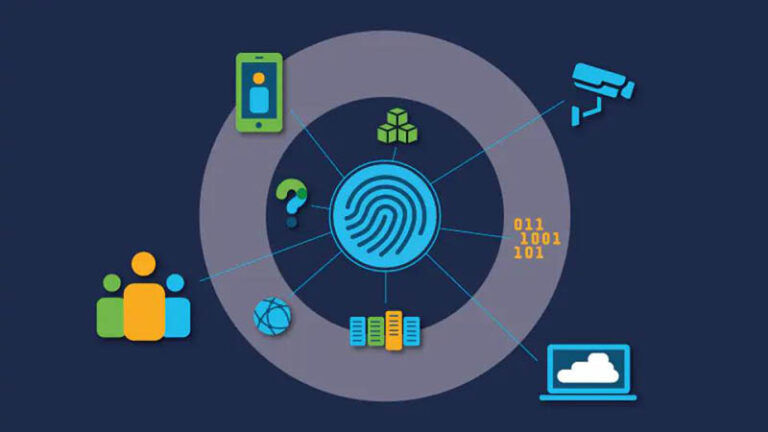Cisco Systems, Inc. is a global technology company that specializes in networking hardware, software, and telecommunications equipment. Cisco’s products and services are widely used in the networking industry, making it a leader in the field. To ensure that professionals have the necessary skills and knowledge to work with Cisco’s products, the company offers a comprehensive certification program. The Cisco Networking Certification program is designed to validate the skills and expertise of individuals in various areas of networking, including routing and switching, security, wireless, and more. This certification program is highly respected in the industry and is recognized worldwide as a benchmark for networking professionals.
Key Takeaways
- Cisco Networking Certification is a valuable credential for IT professionals looking to advance their careers in networking.
- Obtaining a Cisco Networking Certification can lead to increased job opportunities and higher earning potential.
- Cisco offers different levels of certification, including Entry, Associate, Professional, Expert, and Architect levels.
- To prepare for the Cisco Networking Certification exam, candidates can take advantage of study materials, practice tests, and training courses offered by Cisco.
- Individuals with a Cisco Networking Certification can pursue career opportunities as network administrators, network engineers, and network security specialists, among others.
Benefits of Obtaining a Cisco Networking Certification
Obtaining a Cisco Networking Certification can open up a world of opportunities for networking professionals. One of the key benefits of obtaining this certification is the validation of skills and expertise in working with Cisco’s products and technologies. This can lead to increased credibility and recognition in the industry, as well as potential career advancement opportunities. Additionally, individuals with a Cisco Networking Certification often have a competitive edge in the job market, as many employers prefer candidates with this certification due to its reputation for high standards and rigorous training. Furthermore, certified professionals may also have access to exclusive networking events, resources, and job opportunities through Cisco’s extensive network of partners and customers.
Another benefit of obtaining a Cisco Networking Certification is the potential for higher earning potential. According to Cisco’s website, individuals with a Cisco Certified Network Associate (CCNA) certification can earn up to 10% more than their non-certified counterparts. This trend continues with higher-level certifications such as the Cisco Certified Network Professional (CCNP) and Cisco Certified Internetwork Expert (CCIE), which can lead to even greater earning potential. Additionally, certified professionals may also have access to specialized job roles and projects that require specific expertise in Cisco’s technologies, which can further enhance their career prospects.
Different Levels of Cisco Networking Certification
The Cisco Networking Certification program offers certifications at various levels, catering to individuals with different levels of experience and expertise in networking. The entry-level certification is the Cisco Certified Entry Networking Technician (CCENT), which validates the skills required for entry-level network support positions. The next level is the Cisco Certified Network Associate (CCNA), which is a more advanced certification that demonstrates the ability to install, configure, operate, and troubleshoot medium-sized routed and switched networks.
Moving up the ladder, the Cisco Certified Network Professional (CCNP) certification is designed for individuals with more advanced skills in networking, including the ability to plan, implement, secure, maintain, and troubleshoot converged enterprise networks. Finally, the highest level of certification offered by Cisco is the Cisco Certified Internetwork Expert (CCIE), which is considered one of the most prestigious certifications in the industry. This certification validates expert-level skills in networking and is highly sought after by employers looking for top talent in the field.
How to Prepare for the Cisco Networking Certification Exam
| Study Material | Practice Tests | Lab Practice |
|---|---|---|
| Cisco Official Cert Guide | Boson Cisco Practice Exams | Packet Tracer Simulations |
| Online Courses | Cisco Learning Labs | GNS3 Network Emulator |
| Study Groups/Forums | MeasureUp Practice Tests | Real Equipment Practice |
Preparing for a Cisco Networking Certification exam requires dedication, time, and effort. One of the best ways to prepare for the exam is to take advantage of the resources offered by Cisco, such as official training courses, study guides, practice exams, and virtual labs. These resources are designed to provide candidates with a comprehensive understanding of the exam topics and help them develop the skills needed to pass the exam.
In addition to official Cisco resources, candidates can also benefit from self-study materials such as books, online tutorials, and study groups. These resources can provide additional insight into the exam topics and help candidates reinforce their understanding of networking concepts. It’s also important for candidates to gain hands-on experience with Cisco’s products and technologies through practical exercises and real-world scenarios. This can help candidates apply their knowledge in a practical setting and gain valuable experience that will be beneficial during the exam.
Furthermore, candidates should create a study plan that outlines their goals, study schedule, and resources they will use to prepare for the exam. This can help candidates stay organized and focused on their preparation efforts. Finally, it’s important for candidates to stay motivated and persistent throughout their preparation journey, as obtaining a Cisco Networking Certification requires dedication and perseverance.
Career Opportunities with a Cisco Networking Certification
Individuals with a Cisco Networking Certification have access to a wide range of career opportunities in the networking industry. Some common job roles for certified professionals include network administrator, network engineer, systems engineer, network security specialist, and wireless network engineer. These roles often involve designing, implementing, maintaining, and troubleshooting network infrastructure using Cisco’s products and technologies.
Certified professionals may also have opportunities to work with various organizations across different industries, including technology companies, telecommunications providers, financial institutions, healthcare organizations, government agencies, and more. Additionally, individuals with a Cisco Networking Certification may also have opportunities to work as independent consultants or contractors, providing specialized networking services to clients.
Furthermore, certified professionals may have access to specialized job roles that require expertise in specific areas of networking, such as cloud networking, cybersecurity, data center networking, and more. These specialized roles often come with unique challenges and opportunities for professional growth and development.
Success Stories of Individuals with Cisco Networking Certification

There are countless success stories of individuals who have obtained a Cisco Networking Certification and achieved great success in their careers. For example, John Smith, a network engineer with over 10 years of experience in the industry, obtained his CCIE certification and was able to secure a senior network architect role at a leading technology company. With his expertise in designing complex network solutions using Cisco’s technologies, John was able to make significant contributions to his organization’s network infrastructure and lead high-impact projects that improved network performance and security.
Another success story is that of Sarah Johnson, who started her career as a network administrator after obtaining her CCNA certification. Over time, Sarah continued to advance her skills and expertise by obtaining her CCNP certification and eventually her CCIE certification. With her expert-level knowledge in networking, Sarah was able to transition into a leadership role as a network operations manager at a global telecommunications company. In this role, she was responsible for overseeing the company’s network operations team and ensuring the stability and performance of their network infrastructure.
These success stories demonstrate the potential for career growth and advancement that comes with obtaining a Cisco Networking Certification. Whether it’s securing high-level roles, leading impactful projects, or making significant contributions to an organization’s network infrastructure, certified professionals have the opportunity to achieve great success in their careers.
Conclusion and Next Steps for Obtaining Cisco Networking Certification
In conclusion, obtaining a Cisco Networking Certification can be a game-changer for networking professionals looking to advance their careers and validate their expertise in working with Cisco’s products and technologies. The benefits of obtaining this certification are numerous, including increased credibility, higher earning potential, access to exclusive opportunities, and specialized job roles. With different levels of certification available, individuals can choose the path that best aligns with their skills and career goals.
For those considering obtaining a Cisco Networking Certification, the next steps involve thorough preparation for the certification exam using official resources from Cisco as well as self-study materials. It’s important to create a study plan and stay motivated throughout the preparation process. Once certified, individuals can explore various career opportunities in the networking industry and work towards achieving their professional goals.
Overall, obtaining a Cisco Networking Certification is an investment in one’s career that can lead to long-term success and fulfillment in the dynamic field of networking. Whether it’s advancing into leadership roles, working on cutting-edge projects, or making a positive impact on an organization’s network infrastructure, certified professionals have the opportunity to thrive in their careers and contribute meaningfully to the industry.
FAQs
What is a Cisco Networking Certification?
A Cisco Networking Certification is a professional certification program offered by Cisco Systems, Inc. It validates the skills and knowledge of individuals in various networking technologies and solutions.
What are the different levels of Cisco Networking Certifications?
Cisco offers certifications at different levels, including Entry, Associate, Professional, Expert, and Architect. Each level represents a different stage of expertise and knowledge in networking technologies.
What are the benefits of obtaining a Cisco Networking Certification?
Obtaining a Cisco Networking Certification can lead to career advancement, increased job opportunities, higher earning potential, and recognition of expertise in the field of networking.
What are some popular Cisco Networking Certifications?
Some popular Cisco Networking Certifications include CCNA (Cisco Certified Network Associate), CCNP (Cisco Certified Network Professional), and CCIE (Cisco Certified Internetwork Expert).
How can I prepare for a Cisco Networking Certification exam?
You can prepare for a Cisco Networking Certification exam by taking training courses, studying official Cisco certification guides, practicing with hands-on labs, and using practice exams to test your knowledge.
Are there any prerequisites for obtaining a Cisco Networking Certification?
Some Cisco Networking Certifications may have prerequisites, such as having a certain level of experience or holding a lower-level Cisco certification. It is important to review the specific requirements for each certification.
















